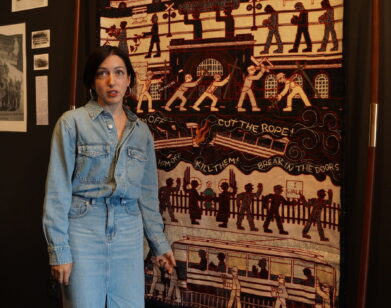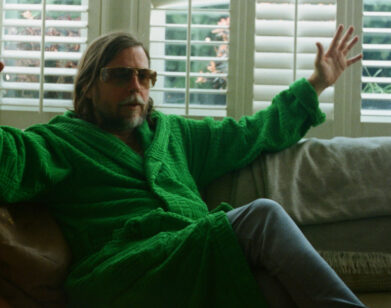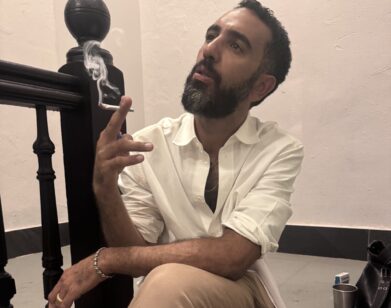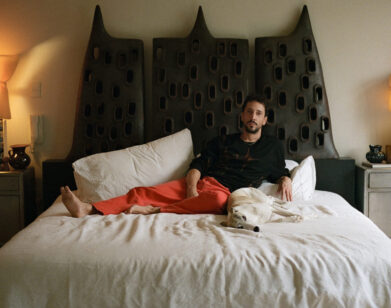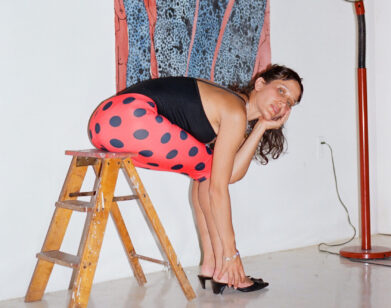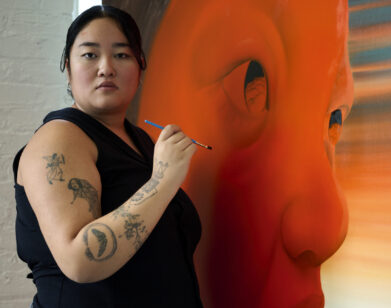Simon Fujiwara’s Distant Memory
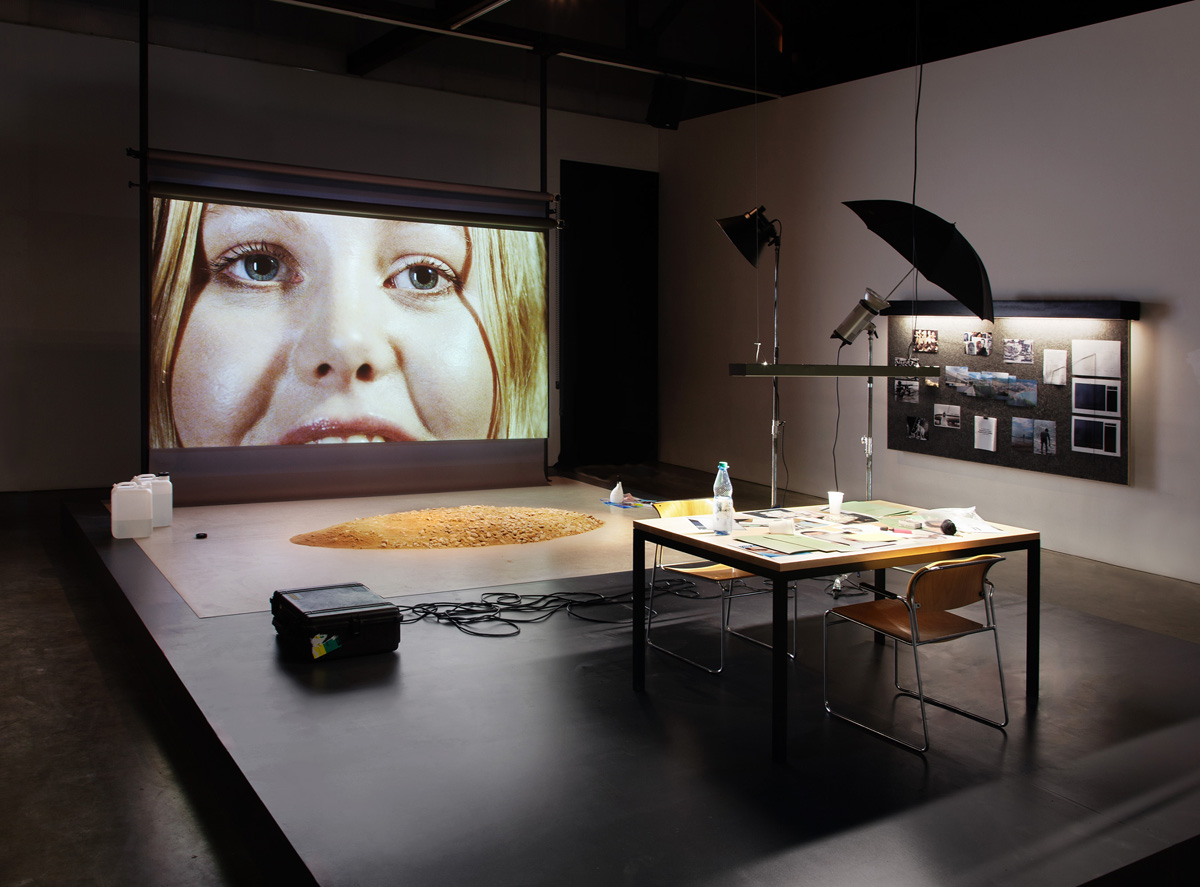
Personal history, pieced together through foggy memories and tangible clues, is at the core of British-born artist Simon Fujiwara’s work. As he translates his personal narrative into art, he lets go of any intimate meaning, and the specific becomes universal. “I’ve been able to steer people’s perception of where I come from by working with material perceived as biographical,” explains Fujiwara. “That’s been an important foundation of my practice.” Following his successful solo show last year at the Tate St. Ives in Britain, Fujiwara, 31, has solo shows scheduled at the Palais de Tokyo in Paris and the Mori Art Museum in Tokyo. His first solo show in New York opened last week at Andrea Rosen Gallery.
The focus of the exhibition, titled “Studio Pietà (King Kong Komplex),” is a hazy recollection of a photo showing Fujiwara’s bikini-clad mother, who was an English cabaret dancer in Beirut in the late 1960s, in the arms of a Lebanese man—not the artist’s father—on the beach. At the center is a video documenting Fujiwara’s bid to recreate the photograph, narrated by an interview with himself. “You can say a lot if you only have yourself to answer to,” he points out.
The relationship to the models he casts to play his mother (must be: a blonde dancer) and the man (must be: Middle Eastern) are foreseeably charged; he chooses the female model for her directness, but is disappointed when he finds out she’s played an archetypal woman in a German commercial. He lets her pick out the male model, thinking himself indifferent until she makes her choice.
The screen is situated among props from the film—there’s a pile of sand, a bulletin board with string connecting photos and items, and table that looks like it was used for an interrogation; together, it’s reminiscent of a clichéd detective scene.
Ultimately, Fujiwara yields his vision of the photo to his memory’s limits and the models’ realities: the woman is not quite his mother, and the man’s past struggle with typecasting upstages the dominance he’s meant to project. Fujiwara gives us a Pietà instead as the woman holds the man, supported in a harness.
“So, it does not look anything like the original photograph,” Fujiwara states wryly to himself at the beginning of the film.
“No, not really,” he answers nonchalantly.
“STUDIO PIETÀ (KING KONG KOMPLEX)” WILL BE ON VIEW AT ANDREA ROSEN GALLERY THROUGH AUGUST 9.

